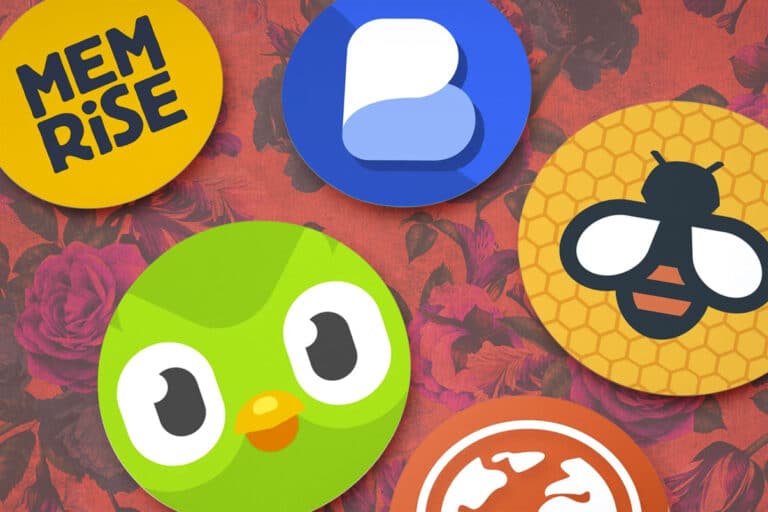An Intro to the Days of the Week in Korean

To confidently speak about events and time in Korean, you’ll have to learn the Korean days of the week.
Here’s a simple guide about the week-related vocabulary you should master ASAP. We’ll go over the days of the week in Korean, their meanings and even share a catchy song at the end to help you remember everything.
Download: This blog post is available as a convenient and portable PDF that you can take anywhere. Click here to get a copy. (Download)
The Days of the Week in Korean
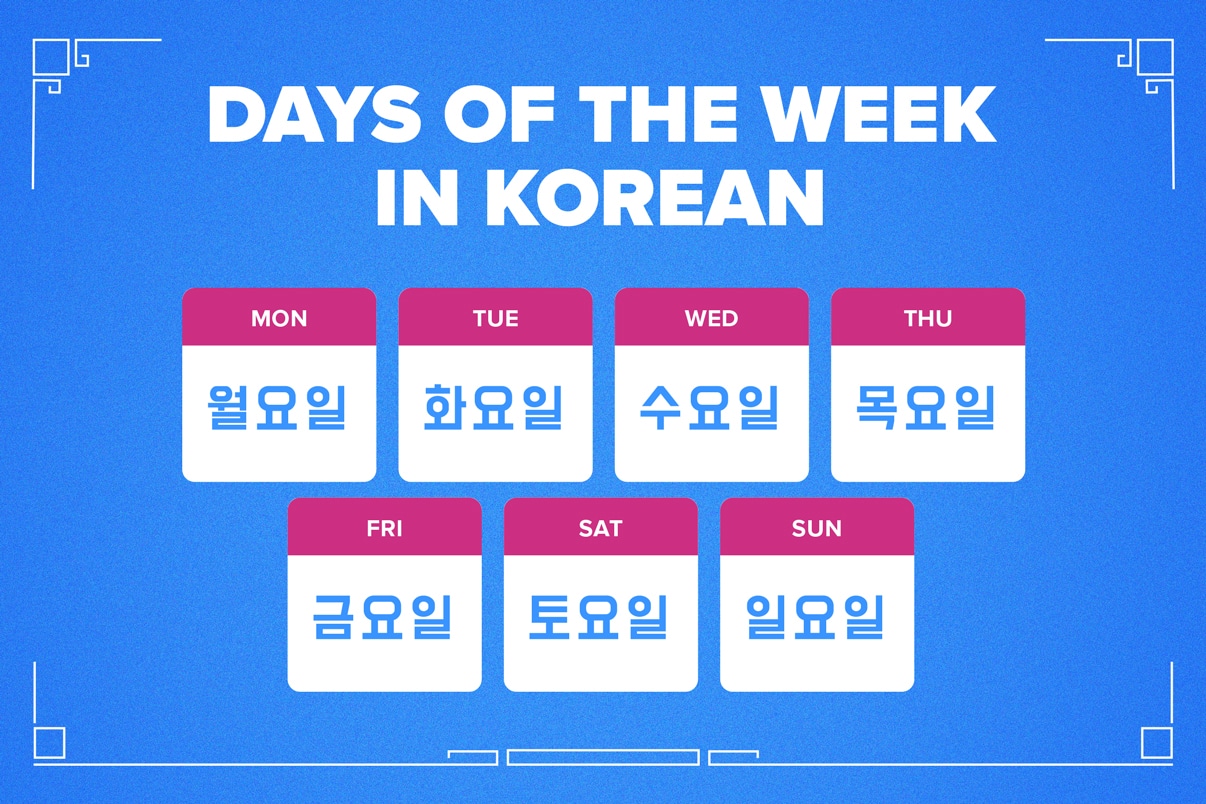
| English | Korean | Romanization |
|---|---|---|
| Monday | 월요일 | wuh-ryo-il |
| Tuesday | 화요일 | hwa-yo-il |
| Wednesday | 수요일 | soo-yo-il |
| Thursday | 목요일 | mog-yo-il |
| Friday | 금요일 | geum-yo-il |
| Saturday | 토요일 | toh-yo-il |
| Sunday | 일요일 | i-ryo-il |
Meanings of the Korean Days of the Week
The word for “day of the week” is 요일 (yo-il). A prefix is then attached to it, depending on the day in question.
In Korean, the names of the days of the week are based on natural elements. They were derived from Chinese characters. In fact, Korea’s traditional lunisolar calendar (now typically substituted with the Gregorian calendar) is essentially the same as the original Chinese calendar.
Interestingly, the use of elements in the naming of weekdays is something seen throughout cultures and languages—for example, the English “Monday,” Spanish lunes and German Montag all were originally named after each respective language’s word for moon.
월요일 (wuh-ryo-il) – Monday
월 means “moon,” so Monday in Korean also means “moon day.”
Remember to pronounce 월 carefully. Since a double vowel Hangul character is involved, it may be a bit difficult to articulate if you’re not so used to Korean pronunciation yet. Luckily, the way you vocalize it can help you out—your mouth will take on an “O” shape, much like a moon itself!
화요일 (hwa-yo-il) – Tuesday
화 means “fire,” so Tuesday is “fire day.”
While there’s nothing intrinsically fiery about it, you can remember the word for Tuesday with a little visual mnemonic: a bright orange fire can “consume” or dispel the darkness of a moonlit night.
수요일 (soo-yo-il) – Wednesday
수 stands for “water,” making Wednesday “water day.”
There are a number of ways you can remember this. Following my little mnemonic tip for 화요일 (Tuesday), you can also think: water can “consume” (overwhelm) fire. Another easy recall tip is that both water and Wednesday start with the letter “W.”
목요일 (mog-yo-il) – Thursday
목 is “wood,” so Thursday is “wood day.”
We can continue my elemental mnemonic to say that wood can “consume” (absorb) water. So, the order from Monday to Thursday goes: moon, fire, water, wood.
금요일 (geum-yo-il) – Friday
금 means “gold,” making Friday “gold day.”
You probably don’t need any help remembering this one! It seems like we can all agree across cultures that Friday is truly the most treasured of the week.
토요일 (toh-yo-il) – Saturday
토 stands for “earth” or “soil,” so Saturday is “earth day.”
A trick that might help you remember the prefix is by mangling the pronunciation of Saturday a bit to Sat-earth-day. Another pronunciation trick is that 토요일 sounds a bit like “toil,” as in “toil in the soil”!
일요일 (i-ryo-il) – Sunday
일 stands for “sun” or “day,” so Sunday is “sun day”!
We can bring back the elemental mnemonic, to remember that the day’s sun (of 일요일) will eventually be “consumed” or followed by the night’s moon (of 월요일, Monday). 일 is also repeated twice. So now we can use the mnemonic to remember Sunday to Thursday!
Korean Vocabulary Related to the Days of the Week
Alongside the days of the week, you should also know other basic vocabulary related to time-telling:
- 날짜 (nal-jja) – date
- 매일 (meh-il) – daily
- 오늘 (o-neul) – today
- 내일 (neh-il) – tomorrow
- 모레 (mo-reh) – day after tomorrow
- 어제 (uh-jeh) – yesterday
- 그저께 (geu-juh-kkeh) – day before yesterday
- 아침 (ah-chim) – morning
- 오후 (o-hu) – afternoon
- 저녁 (juh-nyuk) – evening
- 밤 (bahm) – night
- 주 (ju) – week
- 주말 (ju-mahl) – weekend
- 평일 (pyung-il) – weekday
- 월 (wol) – month
- 년 (nyun) – year
Phrases to Talk About the Days of the Week in Korean
Here are some of the most common Korean phrases you’ll hear related to talking about the days of the week.
- 오늘은 무슨 요일이에요? – What day of the week is it?
- 오늘은 며칠이에요? – What is today’s date?
- 제 생일은 ________ 이에요. – My birthday is _______.
- 오늘은 _________ 이에요. – Today is _______.
- 내일은 _________ 이에요. – Tomorrow will be _______.
Ways to Remember the Korean Days of the Week
Along with the mnemonics we share above, if you need some extra help remembering the Korean days of the week, why not use a catchy song? Here’s one that might help you do just that.
Another thing you can do is listen to the words in context as used by native speakers. You can do this with an immersive language program such as FluentU.
FluentU takes authentic videos—like music videos, movie trailers, news and inspiring talks—and turns them into personalized language learning lessons.
You can try FluentU for free for 2 weeks. Check out the website or download the iOS app or Android app.
P.S. Click here to take advantage of our current sale! (Expires at the end of this month.)
That’s the quick breakdown of what you need to know about the Korean day-to-day (literally).
Now you should be much more fluent in tracking down the week and talking dates in Korean!
Download: This blog post is available as a convenient and portable PDF that you can take anywhere. Click here to get a copy. (Download)
And One More Thing...
If you enjoyed this post, you're already halfway to having the time of your life learning Korean with FluentU!
FluentU makes it possible to learn with K-pop videos, funny commercials, entertaining web series and more. Just a quick look will give you an idea of the variety of FluentU videos on offer:
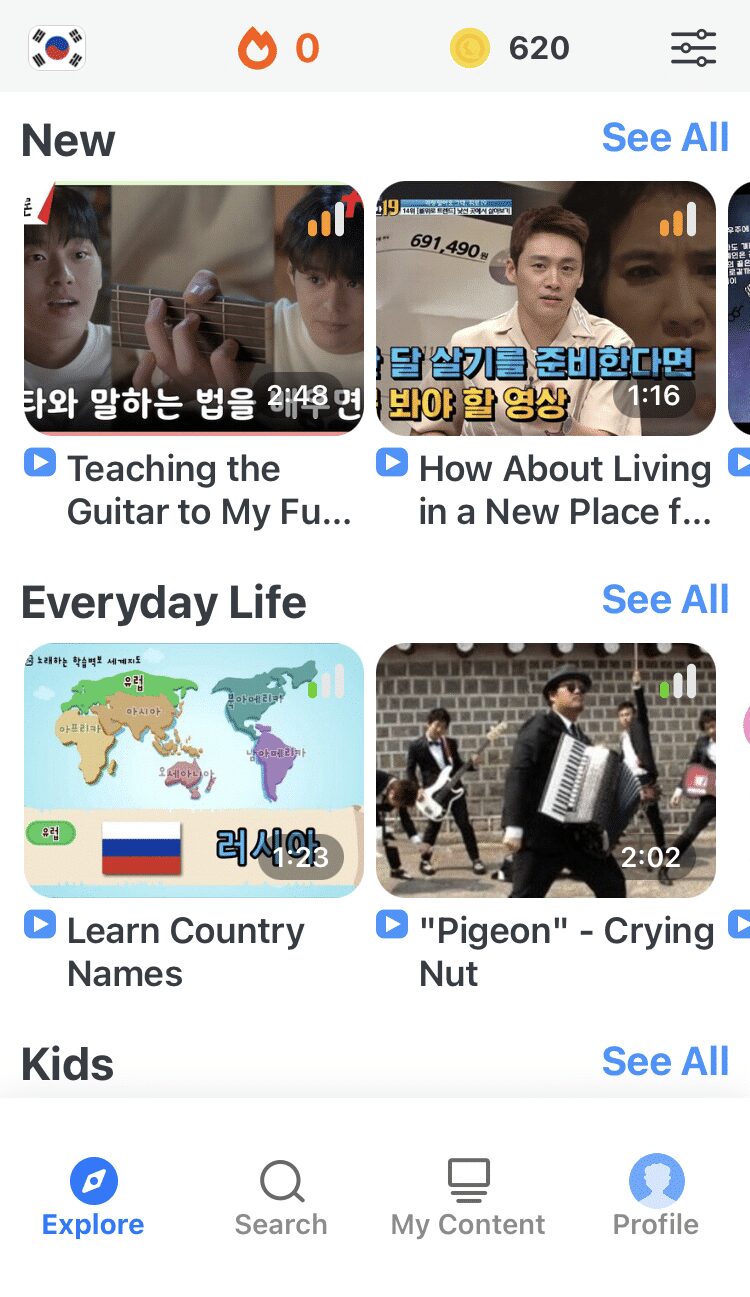
FluentU really takes the grunt work out of learning languages, leaving you with nothing but engaging, effective and efficient learning. It's already hand-picked the best videos for you (which are organized by level and topic), so all you have to do is simply choose any video that strikes your fancy to get started.
Each word in the interactive captions comes with a definition, audio, image, example sentences and more.

Access a complete interactive transcript of every video under the Dialogue tab, and easily review words and phrases from the video under Vocab.
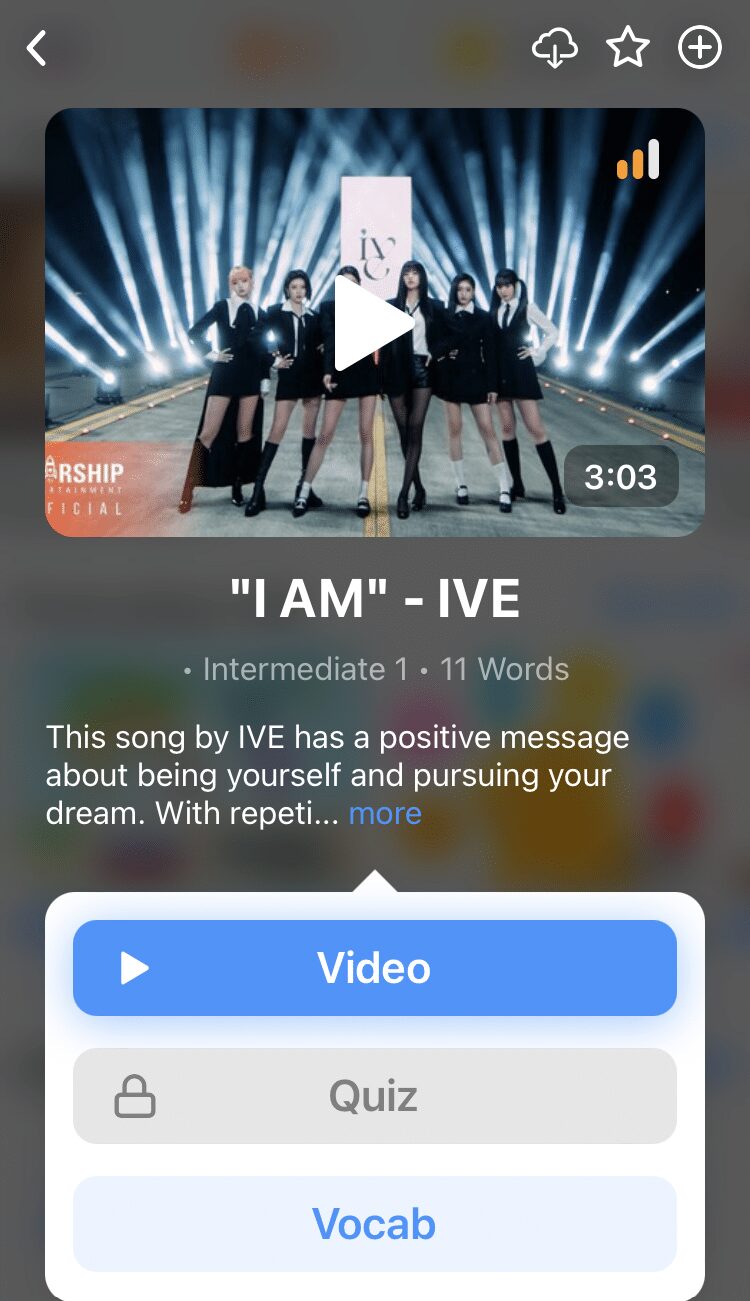
You can use FluentU’s unique Quiz Mode to learn the vocabulary and phrases from the video through fun questions.
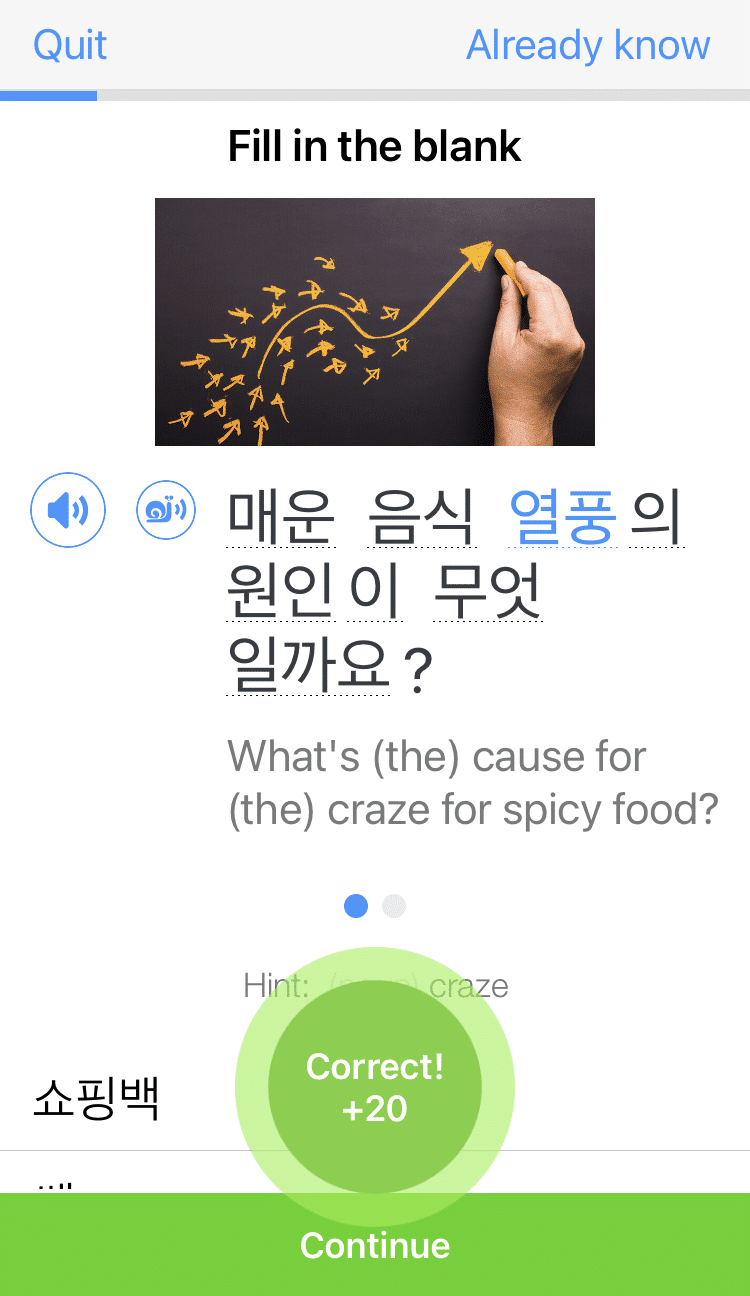
FluentU keeps track of what you're learning, and tells you exactly when it's time for review, giving you a 100% personalized experience.
Review sessions use video context to help embed the words in your memory.
Start using the FluentU website on your computer or tablet or, better yet, download the FluentU app from the iTunes or Google Play store. Click here to take advantage of our current sale! (Expires at the end of this month.)

